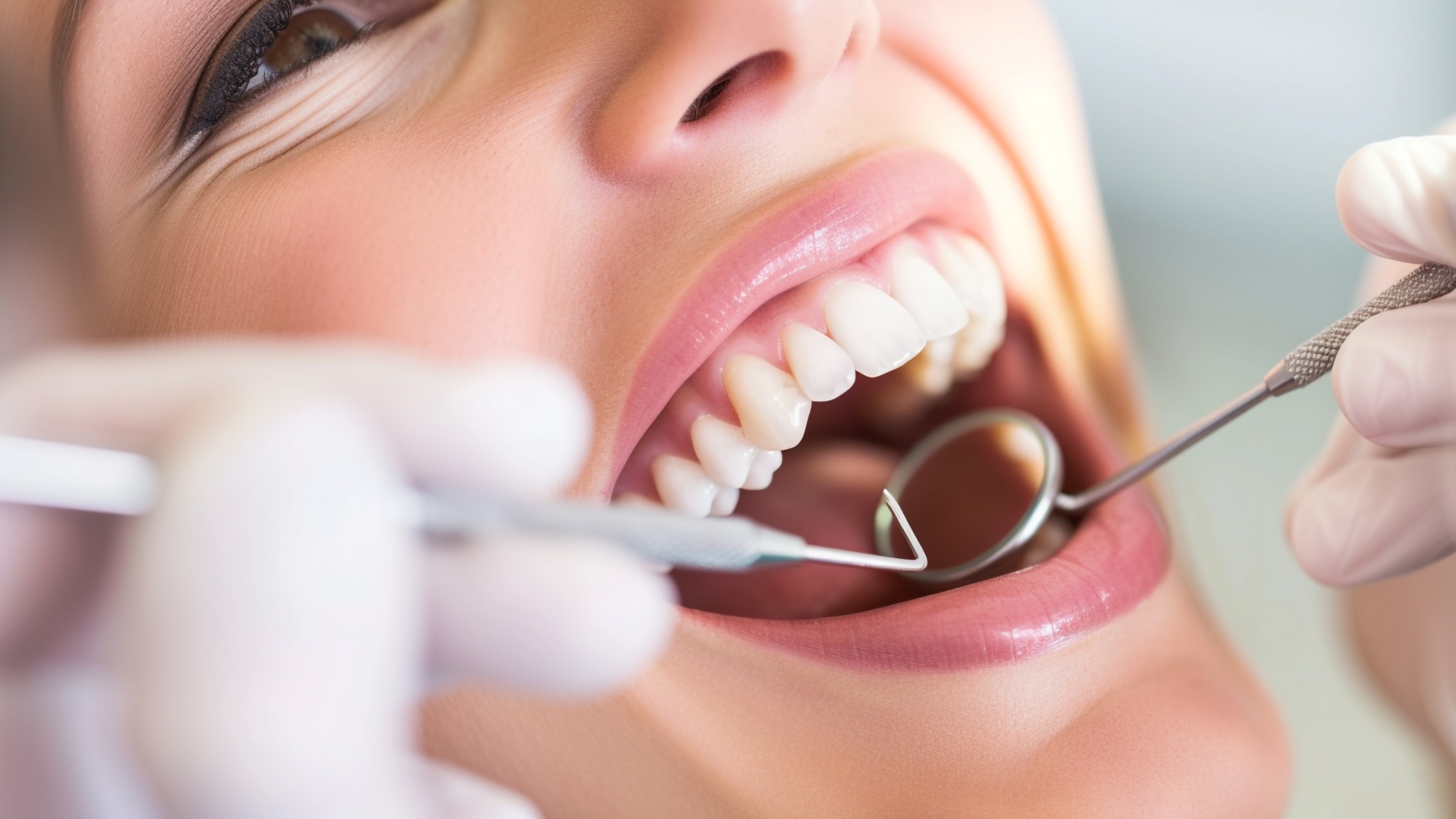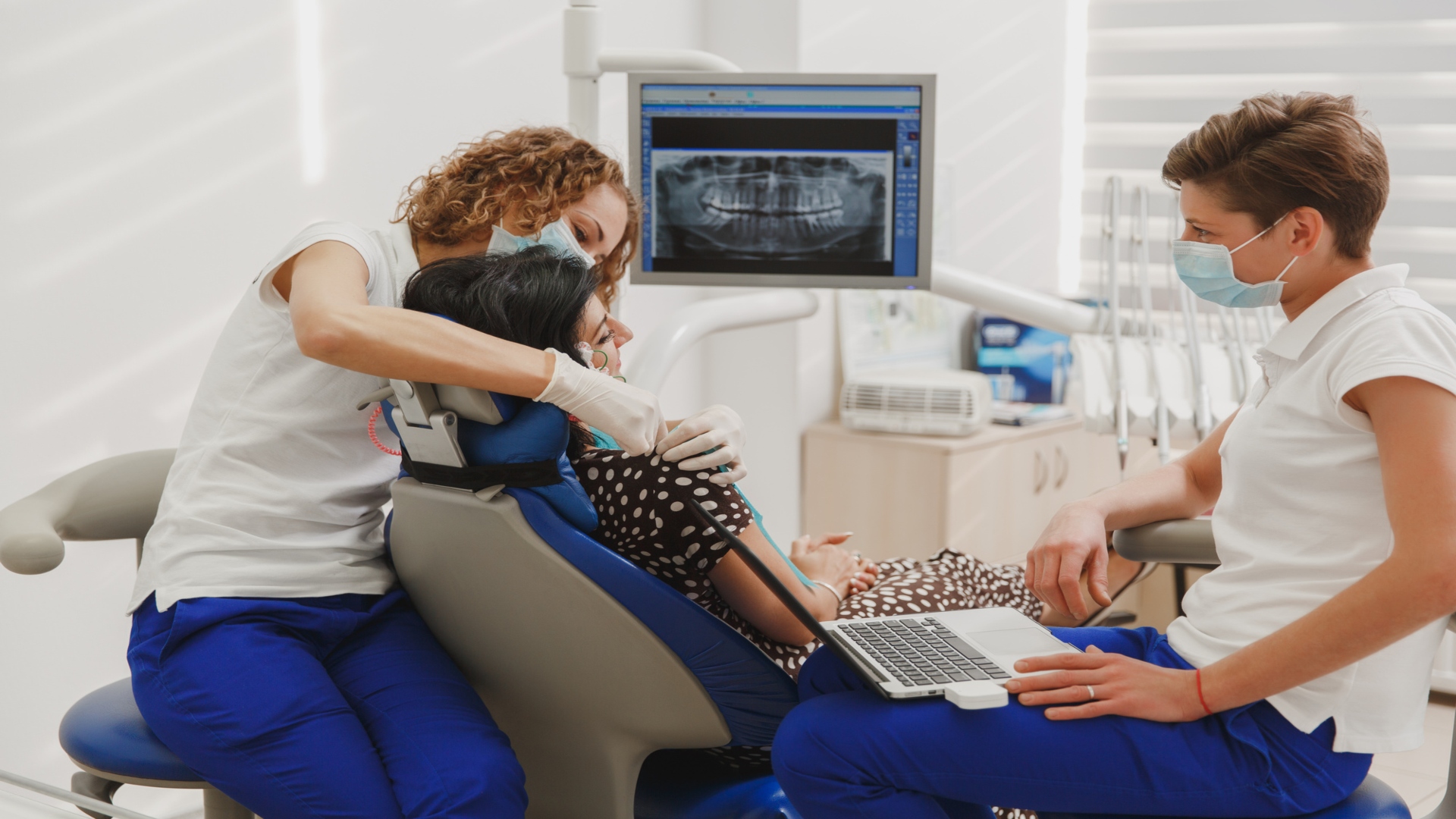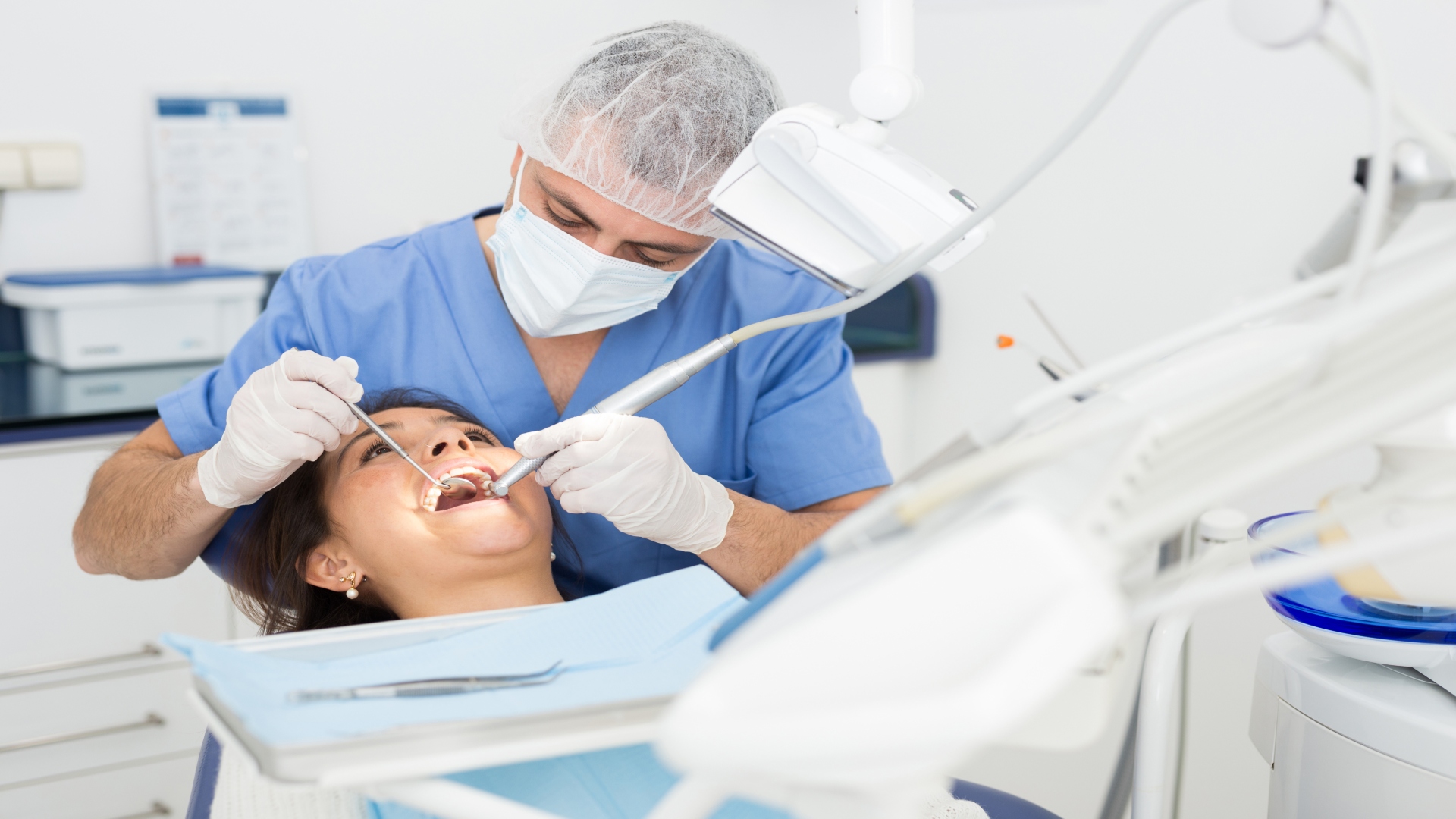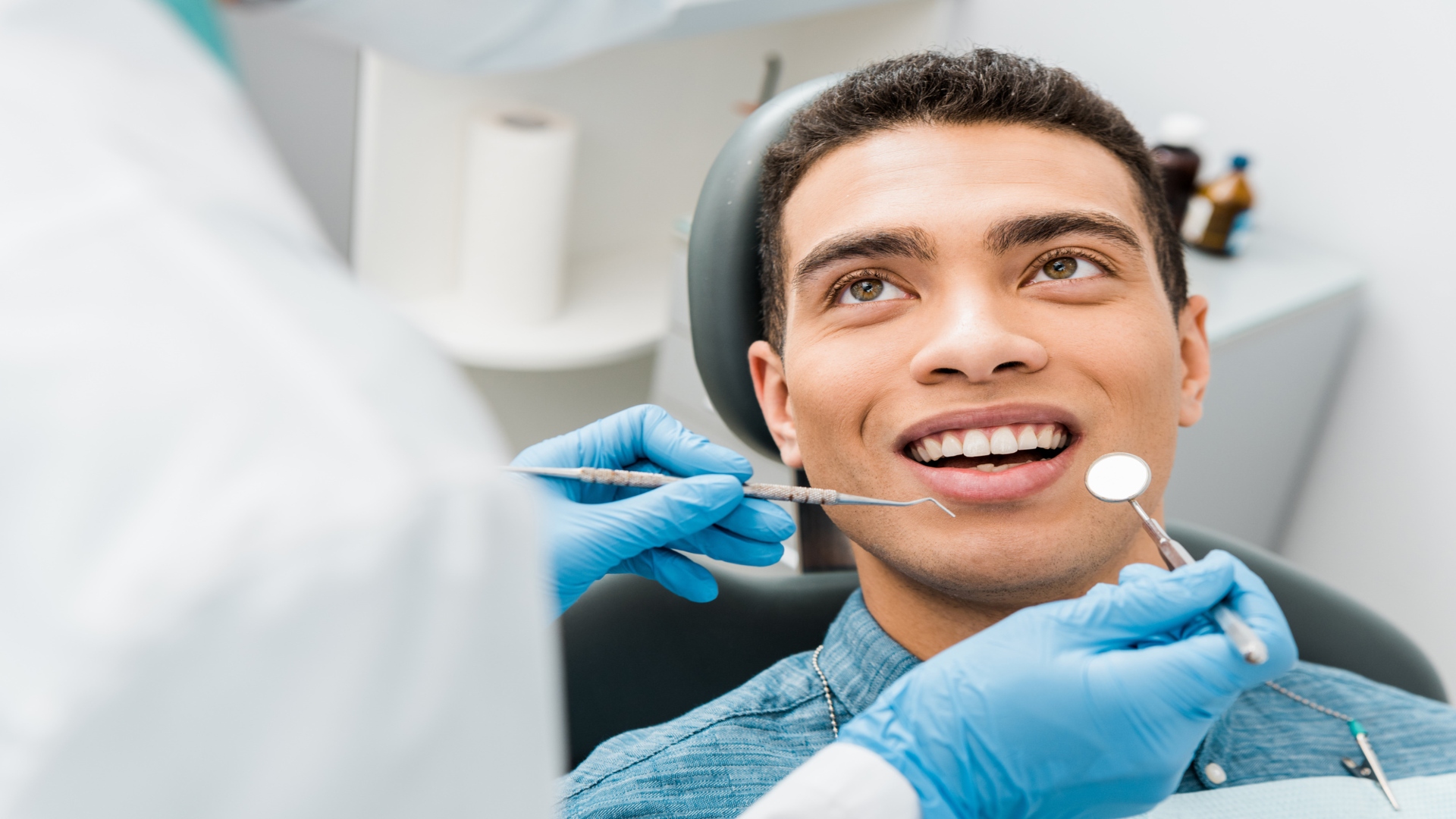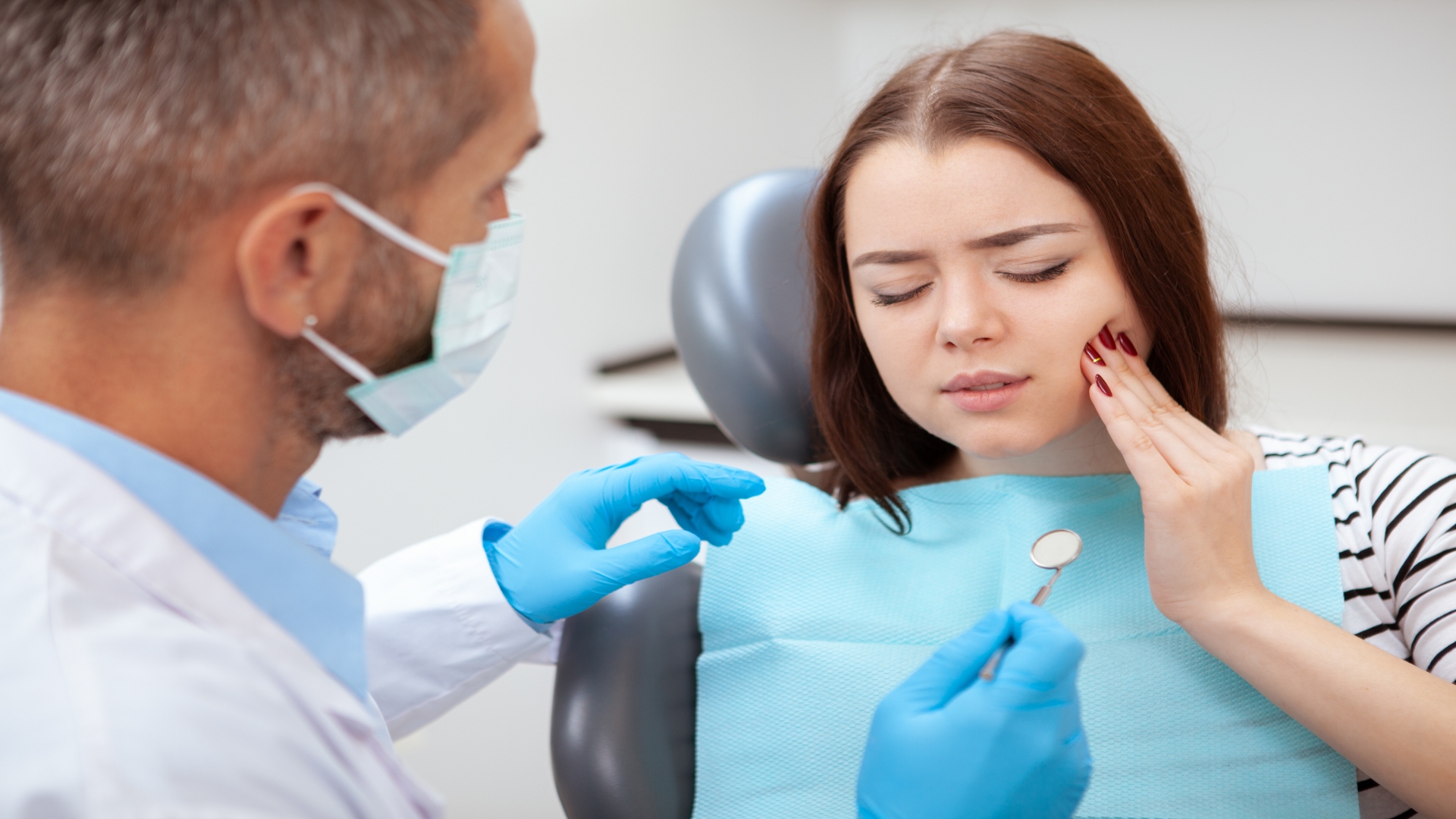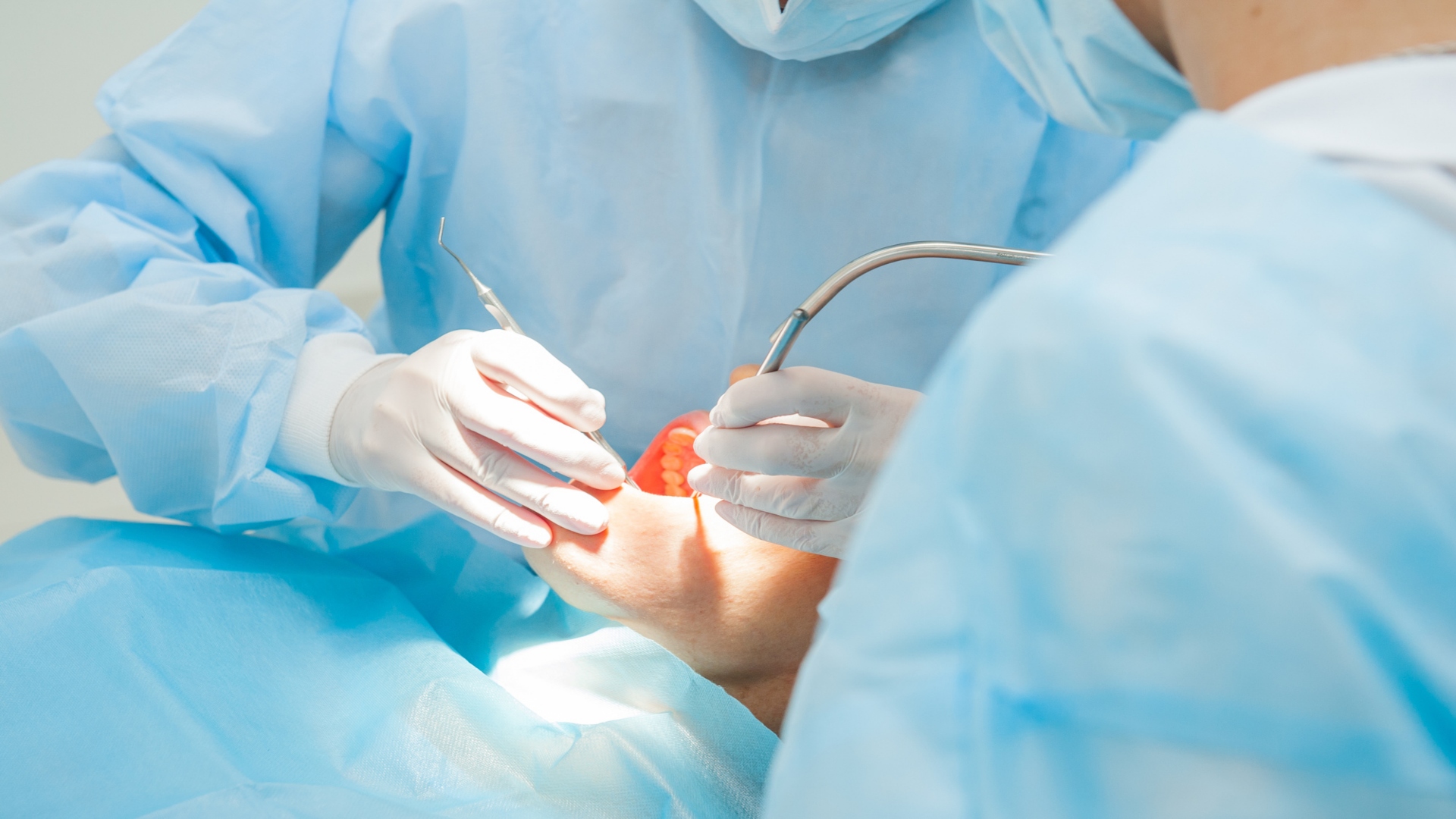Zygomatic implantation is one of the techniques used to restore a row of teeth in cases of complete or multiple tooth loss. This method is applied to the upper jaw and involves the placement of special rods into the zygomatic bone tissue.
The procedure is quite complex, requiring a high level of skill from the implantologist and proficiency in working with such materials. Zygomatic implantation demonstrates high effectiveness, and complications and risks are practically eliminated when the protocols are followed correctly. Inflammatory processes and fistulas may develop if the patient neglects the doctor’s recommendations or if errors are made during tooth treatment.
Classic implantation is considered the primary effective method for tooth restoration in case of tooth loss. However, in cases of bone tissue atrophy, it requires a preceding osteoplastic operation. Moreover, there are often contraindications for such manipulations. Previously, the only alternative in such situations was uncomfortable removable dentures. Today, there is a more efficient solution – zygomatic implants.
Zygomatic implants allow minimizing the risks of complications and rejection and are suitable for elderly patients with sinus pathologies. This implantation technique is becoming more widespread, including being used by qualified specialists at our Dentatur clinic in Turkey, making it more attractive in terms of cost.
How is zygomatic tooth implantation different from the classic method?
The main difference lies in the fact that zygomatic implants are embedded in the zygomatic bone, which is denser and structurally stronger. Additionally, it is less prone to atrophy, making it a reliable support for artificial roots at any age.
Zygomatic tooth implantation is faster compared to the classic method; there is no need for preoperative bone tissue augmentation. After implant placement, there is no pause for integration; subsequent gum former installation, waiting for healing, etc., is not required.
Zygomatic implants themselves differ from classic ones in increased length and a unique shape. Lifetime warranty is provided for the corresponding products, and successful integration is generally ensured even in the most complex cases.
Zygomatic Implant brands
The most commonly used rods in global practice are NobelBiocare and NorisMedical. Their products are of high quality and well-adapted for zygomatic implantation.
Zygoma implants, with a length of up to 5.2 cm and a diameter of up to 5.2 mm, provide reliability and durability. The presence of a patented coating accelerates integration into surrounding tissues.
Zygomatic implants include rods with great length and high integration rates. The special shape allows avoiding the use of complex angled abutments, reducing treatment costs.
Advantages of zygomatic implant installation
- Quick restoration of lost teeth with immediate loading, addressing both aesthetic concerns and the restoration of chewing function simultaneously.
- Implantation without mandatory bone tissue augmentation.
- Minimal risks of complications and integration issues, especially with the use of high-quality products like Zygoma implants, which are likely to last a lifetime.
- The possibility to forgo removable prosthetics, avoiding discomfort and simplifying oral care.
Indications for zygomatic implant application
Zygomatic tooth implantation is used when other (classic) methods are unsuitable for various reasons. Today, zygomatic implants are applied in cases of:
- Complete or partial upper jaw tooth loss.
- Atrophy of upper jaw bone tissue due to injuries, prolonged tooth loss, or serious chronic pathologies.
- Unsuccessful classic implantation (rejection) or sinus lift procedure. Zygomatic implantation in such situations is a winning alternative to using removable dentures or complex, expensive, and lengthy bone grafting procedures.
- Diseases of the maxillary sinuses, contraindicating osteoplasty and classic implantation.
- Inability to wear removable dentures, whether due to individual intolerance, vomiting reflex, or allergic reactions.
- Advanced age of the patient.
- The need for rapid restoration of the dental arch.
Preliminary Examinations and Key Stages of Zygomatic Implantation
As with any tooth implantation procedure, the key to success lies in thorough and meticulous preparation. First and foremost, the dentist needs to assess the feasibility of zygomatic implant placement, requiring not only examination and questioning but also additional instrumental examinations. A panoramic X-ray alone is insufficient for decision-making; computer tomography is necessary, along with a comprehensive blood analysis to evaluate overall health. In the case of chronic illnesses, the dentist may also refer the patient for consultations with related specialists.
The process of embedding zygomatic implants in Turkey is comparable in invasiveness to classical implantation, preceded by bone augmentation (sinus lifting). However, the operation of implanting the artificial root into the zygomatic bone typically proceeds more smoothly, as the maxillary sinus is not affected. This minimizes swelling, allowing for faster recovery (usually within a few days).
The procedure is performed under sedation, ensuring the patient feels nothing. Additionally, temporary prosthetics can be immediately installed, providing a functional set of teeth on the day of implantation, enabling chewing. Immediate loading accelerates the integration process.
Why Choose Dentatur in Turkey?
The Dentatur clinic network in Turkey offers the restoration of dental arch functionality through the zygomatic implantation technique. Patients at the clinic benefit from the following advantages:
- Fixed prosthetics using high-quality materials from leading global manufacturers.
- Services provided in modern clinics with specialized equipment.
- Highly qualified staff with extensive experience in dental implantology.
- Option for urgent prosthetic placement within a day.
- Absence of discomfort and pain during the procedure.
- Quick adaptation, with no changes to taste or speech.
- Full restoration of aesthetics.
- Preservation of functionality, allowing an immediate return to normal life after the procedure.
To schedule an appointment or obtain additional information, you can submit a request on our website.









